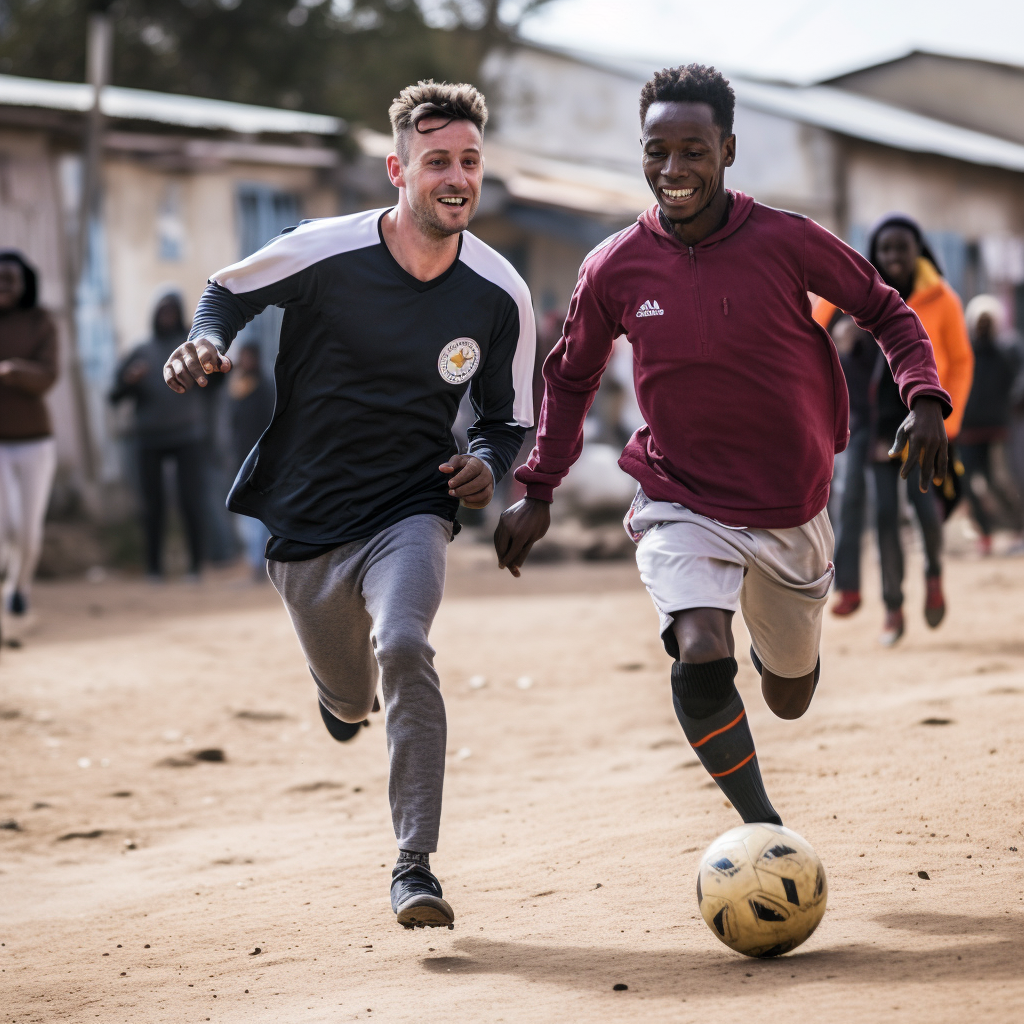I’ll never forget the moment I joined a group of refugees for a game of football. It was a simple act that ended up shaping my entire life’s mission. Let me take you back to that day in Atlanta, Georgia.
I grew up in Amman, Jordan, where playing football was a way of life. So when I stumbled upon a group of kids kicking around a deflated ball in a patchy field, I felt an instant connection. I couldn’t resist joining them.
Back in Jordan, we used tortoises as goalposts, and we all spoke Arabic. Our homes were comfortable, and many of my family members held powerful positions. But in Georgia, the kids used rocks as goalposts, spoke different languages, and lived in cramped apartments.
You see, I found myself in Clarkston, a suburb of Atlanta known as a hub for refugee resettlement. The families living there had recently arrived in the US, fleeing war and persecution. They were navigating the complexities of US immigration policy, learning English, and facing xenophobia.
As a refugee myself, I understood the isolation they felt. I had left Jordan to pursue my education in the US, escaping a country where being gay was met with hostility. But my journey wasn’t easy. When I applied for political asylum at the age of 21, my family disowned me. Overnight, I went from being the child of millionaires to having nothing.
I worked odd jobs to survive until I landed a coaching position in Atlanta. Coaching elite girls’ football became my passion, and I embraced a life of privilege once again. But everything changed when I stumbled upon that game with the deflated ball.
The group of kids in Clarkston eventually became a team, which we named the Fugees. We stood out in the league, with me as the female coach of a diverse group of players. The Fugees quickly became a force to be reckoned with, and our success went beyond the football field.
We transformed into the Fugees Academy, a school that provided a trauma-informed, community-centered approach to refugee education. Our model has become a shining example for schools across the US.
As a society, we often focus on the exceptional success stories of refugees and immigrants. But true success lies in resilience and the willingness to keep trying, even in the face of failure. That’s why I’m proud of every student who gets back up after a setback.
Today, I no longer coach the elite football team. Instead, I dedicate my time to running Fugees Family, a non-profit organization. Looking back on that first football match, I realize it changed my entire perspective on success.
Now that I have children of my own, I want them to succeed, but not at the expense of their well-being. I want them to play, rest, and love themselves. I don’t need them to be perfect; I just want them to have the confidence to believe in themselves.
So, that’s my story. A simple game of football with refugees led me to my life’s mission. It taught me the true meaning of success and the importance of resilience. And now, I strive to instill those values in my own children and the refugee children we serve.
If you want to learn more about my journey and the fight for justice for refugee children, you can check out my book, ‘Believe in Them: One Woman’s Fight for Justice for Refugee Children.’
